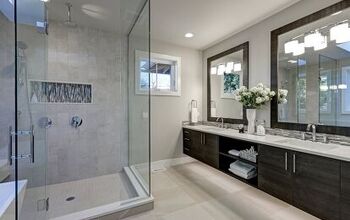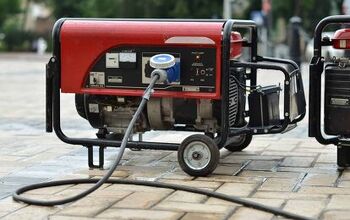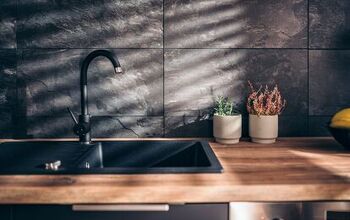Do All Houses Have Sump Pumps?

There is a good chance that even if you don’t see a sump pump in a basement, there is one hiding there somewhere. Sump pumps are often out of sight and out of mind. They are, however, indispensable when it comes to preventing flooding, water damage and issues with your home’s foundation. If you can’t find your sump pump or are on the market for a new home, you might be wondering if all houses have sump pumps.
Not all houses have sump pumps. Sump pumps are not required in places with no risk of water damage, like dry climates. Homes that are designed above ground or that sit on concrete slab with no basement might not have a sump pump. Sump pumps are found in most basements since they help prevent water from collecting and damaging the foundation and structural integrity of the home.
When learning what houses need a sump pump, and what houses might not have or need one, you need to know why sump pumps are important. Once you understand exactly what they do and where they are most-often located. Then you will know why there are some homes that might not have the need for a sump pump.
Why Sump Pumps Are Important
Sump pumps are crucial to keeping many homes dry and safe. The fact is, no matter how well-made your home is, there is still a chance that moisture will find its way in. Sump pumps are what gets that water that sneaks in back out of the home.
There are all sorts of ways water can get into your home. Most notably, water can leak into your home through the basement. Cement foundations can slowly leak (especially If they are cracked). There are also major rain events to consider. Any leak in the home inevitably leads to the basement.
Sump pumps are usually located in a basin (or pit), which is often the lowest point in the home. It is where all moisture will eventually end up. By having this pump that rids the home of this moisture, you help prevent molding, and even damage to the foundation.
For these reasons, pretty much any home with a basement, or in an area where there is rain and moist conditions is likely to have a sump pump. If there is not a sump pump, or sump pump alternative, you should inquire as to why – as this could be a red flag.
Four Reasons Your Home Might Not Have A Sump Pump
Sump pumps can save your home for disastrous flooding, but not all homes require them. In fact, there are several reasons why a house might not have a sump pump installed. Here are four of the most popular reasons why a home might not have a sump pump.
1. The Climate Is Not Prone To Moisture
One of the most common reasons why a home would not have a sump pump is the climate where the house is located. If you live in an area with lots of rain and any potential for flooding, of course, you would want a sump pump.
There are, however, many climates where there is little to no rain. If you live in an arid climate, where there are more cacti than rain drops, there is a good chance your home does not need a sump pump.
2. Soil Type And Where The Home Is Built
The soil type and location of the house might also mean it does not need a sump pump. If your home is built on rock, for example, it is less prone to leaking, as it won’t be surrounded by wet soil. Instead, the rain water will go elsewhere.
Additionally, if your home is located on the top of a hill, where there is little to no chance of rain collecting, then your home might be equipped with some advanced drains rather than a sump pump.
3. Design of The Home
Not all homes are designed the same. In fact some houses are almost polar opposites of one another. There are some homes – like a typical colonial home in New England with a full basement, that will likely require a sump pump. Other home designs would have no use for a sump pump (or even a place to put one).
Picture a home on the Outer Banks of North Carolina. It stands atop tall stilts, often 20 feet above the ground. Sure, there is likely ample drainage and pathways created for water flow (after all, this area is known for storms). But at the end of the day, there would be no point in putting a sump pump in a home built above the ground. After all, the water could just as easily leave the home using gravity.
4. The Home Doesn’t Have A Basement
Basements and low crawl space areas are the two most popular areas where you are likely to find sump pumps in a home. If you do not have a basement, suddenly the most common location for where you would find a sump pump has disappeared.
If your home does not have a basement, there is a chance you do not have, nor need, a sump pump. This is especially true if you have a raised house. If it sits atop a slab of concrete, above the ground, the odds of water seeping into the first floor at much lower than if you had a below ground level. Even if you do not need a sump pump, however, you should still ensure you have proper drainage around your yard to prevent outdoor flooding on your property.
Do I Need To Install A Sump Pump In My Home?
Now that you see some of the reasons why a home might not have a sump pump you should have a better understanding as to why your home does, or does not, have a sump pump. But even with these examples, there is still a chance you might be a little on the fence as to whether or not you think your home needs a sump pump. This is likely because there are many “gray areas” when it comes to deciding whether or not your house needs a sump pump. Here are a few general tips to help guide you when you are in doubt.
If You Have A Basement – Get A Sump Pump
Regardless if you live in a dry climate or wet climate, or even if your house is on a hill, follow this rule. If your house has a basement, it can benefit from a sump pump. Basements are below ground, meaning if there is a flood event of any kind, the water will all trickle down to the lowest point in the home. Having a sump pump in this “lowest point” is a great line of defense. After all, flooded basements can occur without rain. Burst pipes and bathroom nightmares are more common than you might think.
Check Your Building Codes
A great resource to check if you are wondering whether or not you need a sump pump in your home is to check your local building codes. A lot of municipalities require sump pumps in their communities. Check and see if your community requires sump pumps, as it is important (for many reasons) to stay within code.
Ask A Professional About Sump Pumps
If you are a potential buyer, you should ask the building inspector about whether or not the home in question has or needs a sump pump. If you are living in a home already and grappling with this question, see if you can get a professional to give you advice. Then you can ask for a free or affordable quote.
Potential Sump Pump Alternatives
In the end, your home might not need a sump pump. After all, many homes don’t. Still, even in dry conditions it is important to have drainage. You should take general precautions when it comes to preventing water damage. This is where some sump pump alternatives like these can be useful.
- French Drains are a common and fairly seamless way to improve the drainage around your home. French drains are ways to disperse water away from the home, where they collect in a controlled well or basin.
- Gutter Installation is another way to prevent flooding in your home. If you think you don’t need a sump pump, it is best to at least ensure you have good gutters. Make sure these gutters lead away from the house to ensure water won’t find its way into the home.
- Ground Grading is a way of using gravity and landscape design to guide water away from your house. This technique helps keep water away even if you don’t have a house on top of a hill. You can build ground grading that can make sure pools of water do not collect next to your home.
Concluding Thought On Whether Or Not All Homes Have Sump Pumps
Sump pumps are very common in homes, especially in basements and crawl spaces. They are highly effective at preventing unnecessary flooding and water damage. Many building codes require sump pumps. They are not, however, found in all homes. Reasons a home might not have a sump pump include homes in dry climates or with particular soil types, homes built above the ground, and homes that have no basement.

Tom Gaffey is an expert writer who currently resides in Washington D.C. Tom has a passion for real estate and home improvement writing, as well as travel and lifestyle writing. He lived the last twelve years in Hawaii where he worked closely with luxury resorts and event planners, mastering his knowledge of aesthetics and luxury products. This is where he found his passion for home improvement and a keen interest in DIY projects. Currently, Tom resides in Washington D.C, and also working on his debut fiction novel.
More by Tom Gaffey



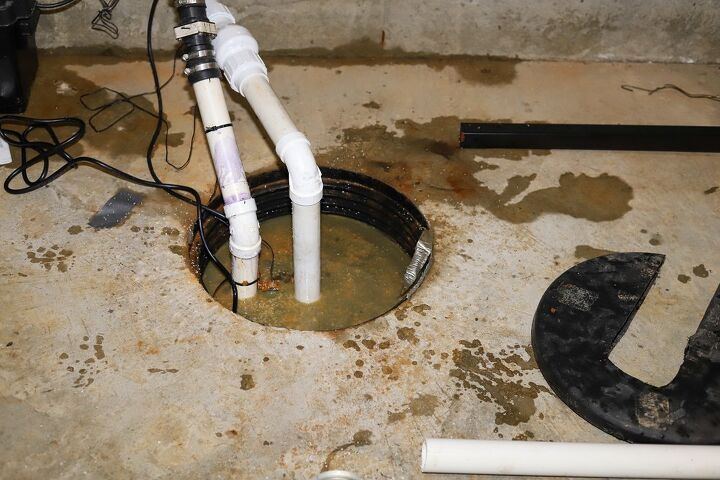






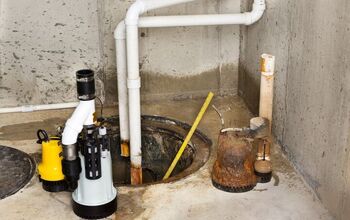
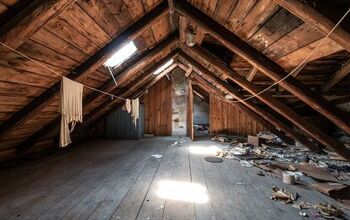
![10 Best Scroll Saws for 2022 [Ultimate Reviews & Buyer's Guide]](https://cdn-fastly.upgradedhome.com/media/2023/07/31/9070684/10-best-scroll-saws-for-2022-ultimate-reviews-buyer-s-guide.jpg?size=350x220)
![10 Best Zero Turn Mowers – [2022 Reviews & Ultimate Buyer's Guide]](https://cdn-fastly.upgradedhome.com/media/2023/07/31/9070522/10-best-zero-turn-mowers-2022-reviews-ultimate-buyer-s-guide.jpg?size=350x220)
